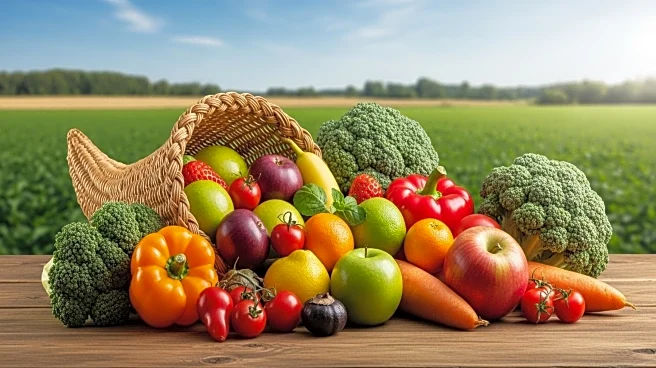What is the story about?
What's Happening?
Daniel Fahene Acquaye, CEO of Agri-Impact Group, is urging Ghana to shift from subsistence farming to commercial agribusiness. He emphasizes the need for Ghana to develop competitive value chains beyond its traditional cocoa dependence. Acquaye highlights the potential in horticulture, livestock, grains, and agro-processing sectors to create employment and increase foreign exchange earnings. He advocates for structured market access and calls for financial institutions to offer specialized loan products for agribusiness. Acquaye also stresses the importance of integrating youth into agriculture through education and rebranding the sector to attract young professionals.
Why It's Important?
The transformation of Ghana's agriculture sector is crucial for economic growth and job creation. By moving towards commercial agribusiness, Ghana can enhance its export competitiveness and reduce reliance on traditional commodities like cocoa. This shift could lead to increased foreign exchange earnings and economic diversification. The integration of technology and modern practices in agriculture can attract young professionals, addressing youth unemployment. Financial institutions' support through tailored loan products can overcome barriers to agribusiness development, fostering a sustainable and inclusive economic environment.
What's Next?
Ghana's government initiatives, such as partnerships to promote food safety and export competitiveness, indicate a growing focus on agricultural transformation. The African Continental Free Trade Area (AfCFTA) presents opportunities for Ghana to lead regional agribusiness development. The country must ensure consistent supply chains and meet international standards to capitalize on the 1.4 billion-person African market. Policy stability and sustained government incentives are essential for agribusiness maturation, requiring long-term commitment beyond political cycles.
Beyond the Headlines
The rebranding of agriculture as a technology-driven sector can change perceptions and attract young talent. This shift can lead to a more sustainable and innovative agricultural industry, contributing to Ghana's industrialization and economic transformation. The focus on agribusiness education and youth integration can create a new generation of skilled professionals, driving economic growth and development.
















